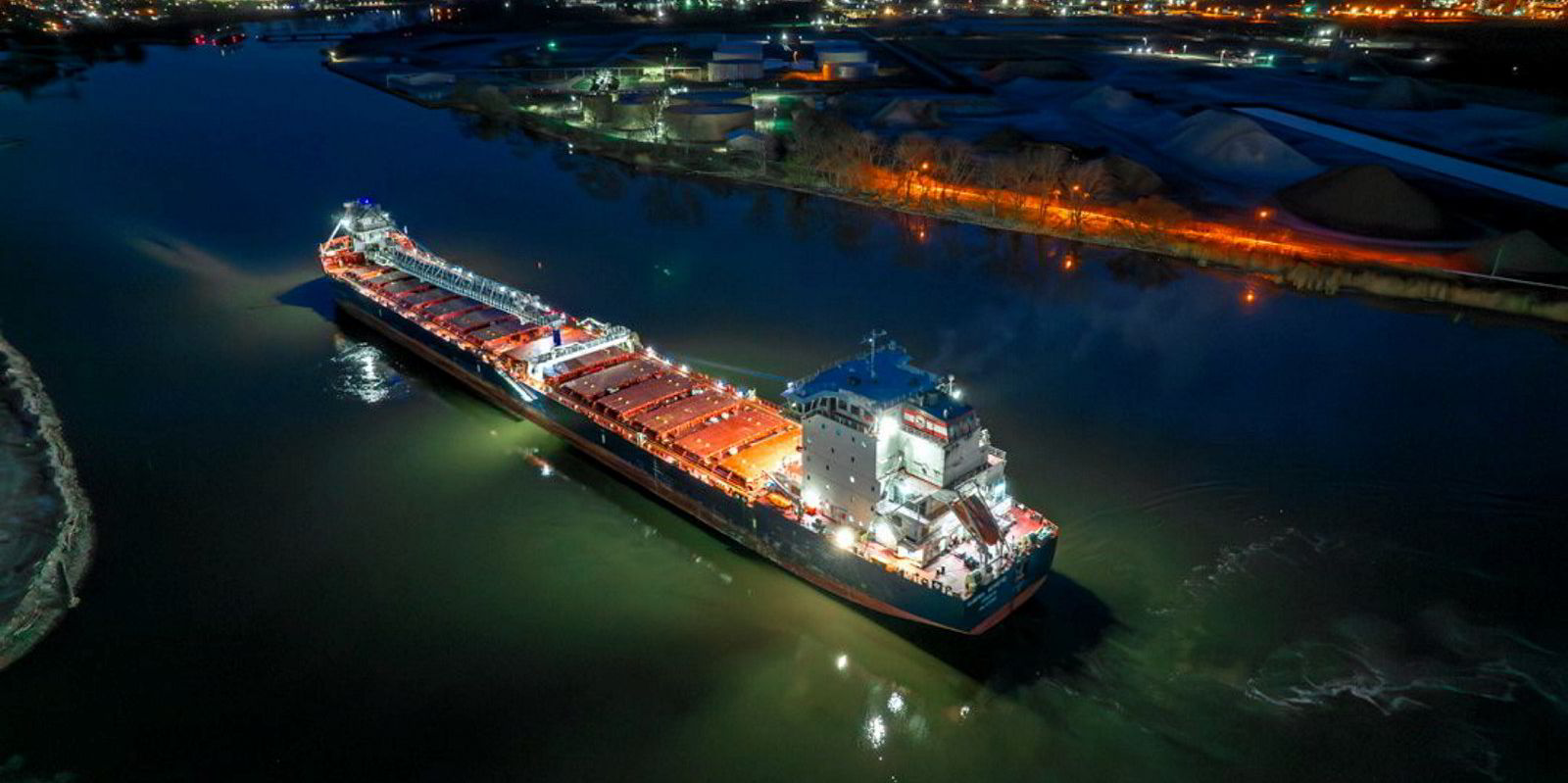Algoma Central has reported results that chief executive Gregg Ruhl said beat all of the past five years.
The Canadian owner of bulkers, product tankers and self-unloaders delivered a loss of CAD 17.3m ($12.6m) for the first quarter.
But losses are normal for Algoma Central in the first quarter because many of its Great Lakes trades are shut down by ice, and the latest numbers improve on the CAD 19.6m loss reported in the opening three months of 2023.
And without a CAD 3.48m gain on the sale of two product tankers in the first quarter of 2023, this year’s numbers represent a 25% decrease in the red ink.
“Algoma’s first-quarter results surpassed the past five years,” Ruhl said in the earnings report.
“The ocean self-unloaders segment achieved its strongest first quarter yet, while the product tankers segment continued its strong earnings trend after a year of transition and growth.”
He said joint ventures also made solid contributions to the bottom line.
Algoma reported revenue of CAD 109m, a 2% decline compared to the first quarter of 2023.
Looking forwards, Ruhl said three tanker newbuildings will boost earnings growth later this year at the company’s FureBear joint venture with Furetank.
| Q1 2024 | Q1 2023 | |
| Revenue | CAD 109m | CAD 112m |
| Operating expenses | CAD 109m | CAD 118m |
| Operating loss | CAD 28.6m | CAD 32.3m |
| Net loss | CAD 17.3m | CAD 19.6m |
And the company is gearing up to start operations of the 38,000-dwt self-unloading bulk carrier Algoma Bear, which was recently delivered from Yangzijiang Shipbuilding’s Yangzi-Mitsui Shipyard.
Toronto-listed Algoma Central said it expects a softening of demand in its domestic dry bulk business, as a mild winter takes a bite out of salt volumes for de-icing.

“There are positive indicators that domestic iron ore volume will increase and grain shipments are expected to hold relatively steady with improved soil moisture levels creating potential for a large 2024 grain crop,” the company, based in St Catharines, Ontario, said.
“In the product tanker segment, we anticipate customer demand to remain steady in 2024 and for fuel distribution patterns within Canada to support strong vessel utilisation for the vessels trading under Canadian flag throughout the year.”
The company expects modest volume gains and vessel utilisation improvements for its internationally trading self-unloading vessels.




